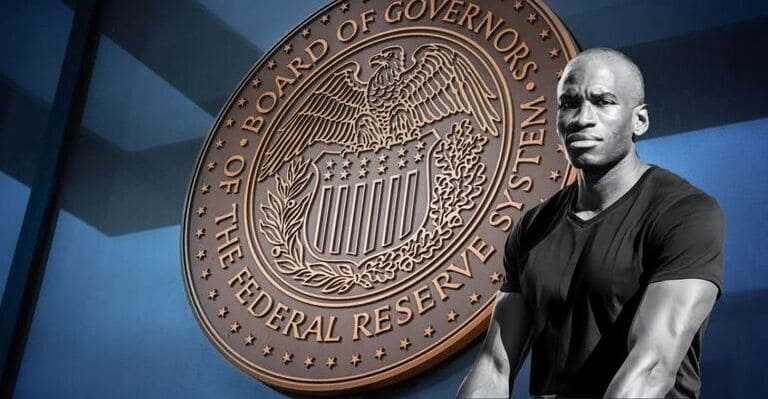TL;DR
- Arthur Hayes warns that rising yields alongside falling stocks reflect a critical imbalance in the financial economy.
- The market anticipates rate cuts in May following new tariffs, with expectations now exceeding 50%.
- Analysts fear that China may reduce its exposure to U.S. Treasuries, which could further raise financing costs in the U.S.
Arthur Hayes, founder of BitMEX, warned that the Federal Reserve has reached a critical point. According to his analysis, current market behavior shows troubling signs.
While stock indexes are falling, 10-year Treasury yields are rising—a pattern that traditionally doesn’t occur simultaneously. This divergence, he said, reflects a severe imbalance in the financial economy.
The Fed is on the clock, shit is breaking down.
Stocks down, 10-yr yield down, good! (prev)
Stocks down, 10-yr yield up, bad! (now)Mrkt finally realising that if there are less export dollar earnings, there cannot be treasury buying or stock buying. Game Over! pic.twitter.com/owuyOU38Cy
— Arthur Hayes (@CryptoHayes) April 9, 2025
According to Arthur Hayes, Fed Intervention Is Inevitable
Arthur pointed out that this situation not only complicates the Fed’s role but also limits its room for action. In his view, if the Treasury cancels upcoming long-term debt auctions and instead uses the balance in the Treasury General Account, it would amount to a form of indirect money printing. For him, this only sets the stage for an inevitable intervention by the Federal Reserve, regardless of which path Jerome Powell chooses.
The market is already adjusting its expectations. In just a few hours, the probability of a rate cut in May rose from 40% to 56%, partly due to the impact of new tariffs on Chinese imports announced by the Trump administration. The combination of tariffs and an economic slowdown reinforces the notion that cuts could continue throughout the rest of the year.

China May Stop Investing in U.S. Treasuries
At the same time, 10-year bond yields exceeded 4.5%, while 2-year yields also rose. This trend suggests that investors are pulling away even from traditionally safe assets, which adds more strain to the markets.
From the financial sector, some analysts warn that countries like China could begin to offload U.S. Treasuries. Such a decision would further increase financing costs in the United States, affecting mortgage credit and business financing.
For now, Powell remains silent, offering no indication of next steps. However, any move to cut rates could be seen as a sign of weakness, which would raise inflation expectations and add more pressure to the U.S. economy.

